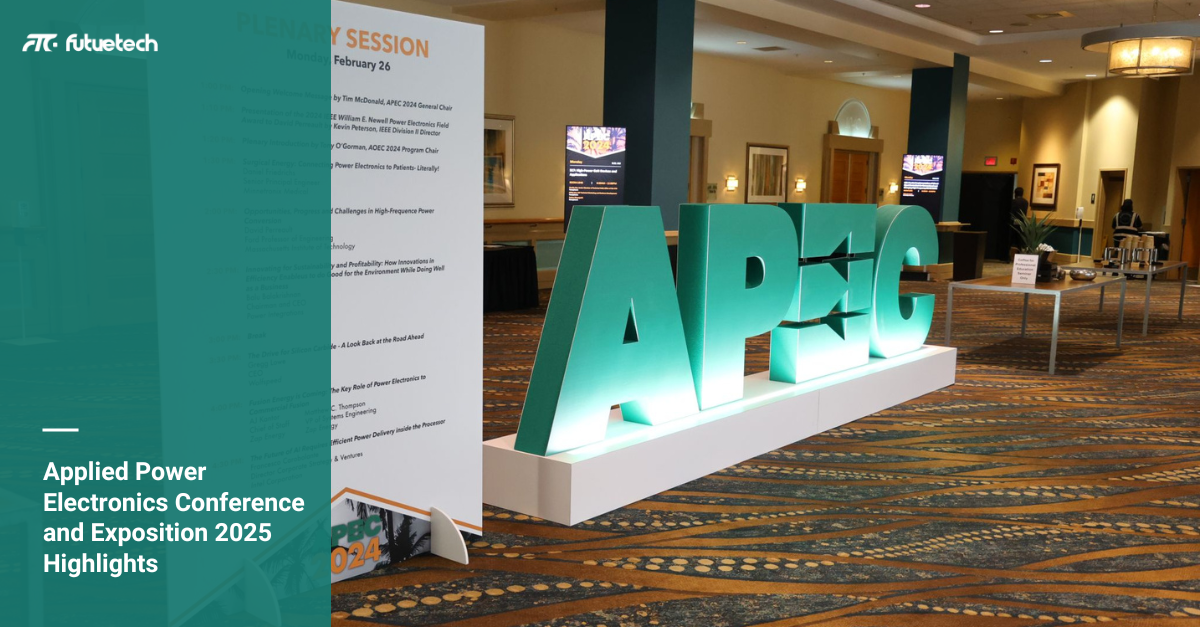In 2025, the Applied Power Electronics Conference and Exposition (APEC), held at the Georgia World Congress Center, marked a milestone event with its prestigious plenary session. This year’s conference seamlessly blended tradition with innovation, reflecting on four decades of technological advancements while exploring key technologies that will drive the future. Staying true to its long-standing mission of addressing both immediate and long-term concerns of power electronics engineers, the plenary session featured distinguished experts who delivered insightful keynote speeches, followed by interactive Q&A sessions that provided valuable engagement opportunities for attendees.
Key Presentations and Core Insights
A Technological Journey: 40 Years of Power Electronics
Speaker: John G. Kassakian
John G. Kassakian, Professor Emeritus of Electrical Engineering at MIT and chairman of the first and second APEC conferences in 1986 and 1987, delivered a retrospective analysis of four decades of rapid advancements in power electronics. He highlighted revolutionary progress across semiconductor devices, control strategies, packaging technologies, and sensor integration. Kassakian also discussed how these technologies have fueled real-world applications, including anti-lock braking systems, motor drive control, solar and wind energy harvesting, and medical imaging innovations such as MRI. Furthermore, he offered profound insights into the projected trends that will shape power electronics over the next decade.
Enhancing Cloud and AI Power Efficiency with a Holistic Semiconductor Approach
Speaker: Thomas Neyer
Thomas Neyer, Senior Vice President and Head of GaN Systems at Infineon Technologies, focused on
high-efficiency power supply solutions for cloud computing and AI-driven infrastructures. He elaborated on how leveraging cutting-edge semiconductor technologies—such as silicon, silicon carbide (SiC), and gallium nitride (GaN)—can significantly improve power efficiency in data centers. Neyer emphasized that the high power density and fast-switching capabilities of these new materials not only reduce energy consumption but also meet the rigorous demands of next-generation high-performance computing.
The Role of Power Electronics in Achieving a Sustainable Hydrogen Economy
Speaker: Francisco Canales
Francisco Canales, a corporate researcher at ABB Switzerland Ltd., explored the crucial role of power electronics in advancing a sustainable hydrogen economy. His presentation analyzed the potential of hydrogen as a clean energy carrier and the growing demand for high-efficiency power conversion technologies in large-scale electrolysis processes. By integrating advanced power conversion methods, future hydrogen systems will achieve cost reductions and enhanced reliability, ultimately accelerating the global energy transition.
Integrated Magnetic Components and Heterogeneous Integration for Vertical Power in High-Performance Computing
Speaker: Cian Ó Mathúna
Cian Ó Mathúna, Director of the Embedded and Integrated Magnetics Systems Research Program at the Tyndall National Institute, discussed the latest breakthroughs in power management for high-performance computing. His presentation introduced MagIC (Magnetics-on-Silicon Integration) technology and highlighted how heterogeneous integration and chiplet-based architectures enable 2.5D/3D packaging for high-performance processors and AI engines. These innovations not only enhance system energy efficiency but also pave the way for the commercialization of next-generation integrated power solutions.
Interactive Discussions and In-Depth Exploration
Following each keynote speech, expert speakers engaged in thought-provoking Q&A sessions with the audience. Engineers and industry professionals raised questions about real-world technical challenges, material selection considerations, and commercialization strategies for emerging technologies. These interactive discussions deepened participants' understanding of cutting-edge advancements while fostering cross-disciplinary collaboration for the future.
Looking Ahead
The APEC 2025 plenary session served as both a comprehensive review of the past 40 years of power electronics and a forward-looking discussion on upcoming technological trends. From traditional power conversion techniques to innovations supporting AI, cloud computing, and sustainable energy, each keynote provided a roadmap for the industry's evolution. As semiconductor technologies, integrated packaging, and advanced materials continue to advance, future power electronics systems will achieve unprecedented efficiency, reliability, and environmental sustainability.
Through this conference, attendees gained valuable technical insights and a greater appreciation of power electronics' transformative impact across various industries. APEC, as North America's premier power electronics event, reaffirmed its unique role in driving industry progress and fostering meaningful knowledge exchange.
At Futuretech Components, we remain committed to supporting the evolution of power electronics by delivering high-quality components that empower innovation. As a trusted distributor, we provide cutting-edge solutions that enable engineers to push the boundaries of technology. Looking ahead, we are excited to continue collaborating with industry leaders and contributing to the future of power electronics.
